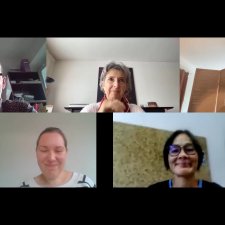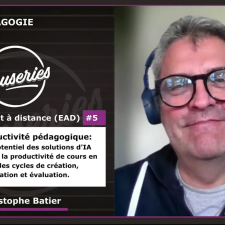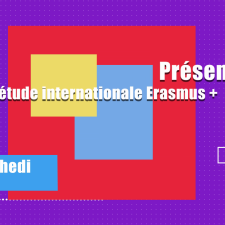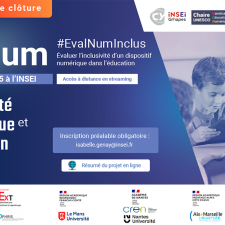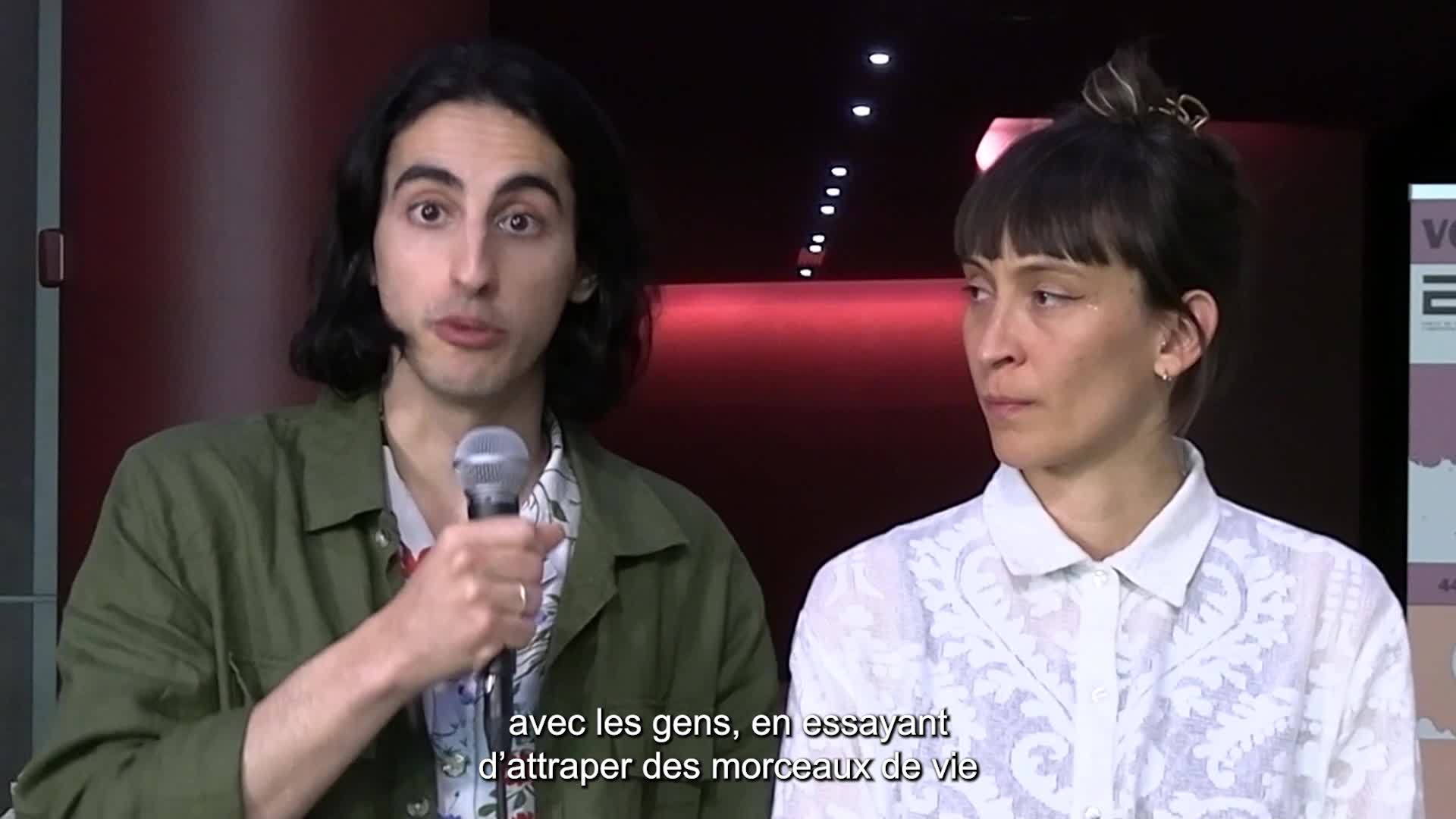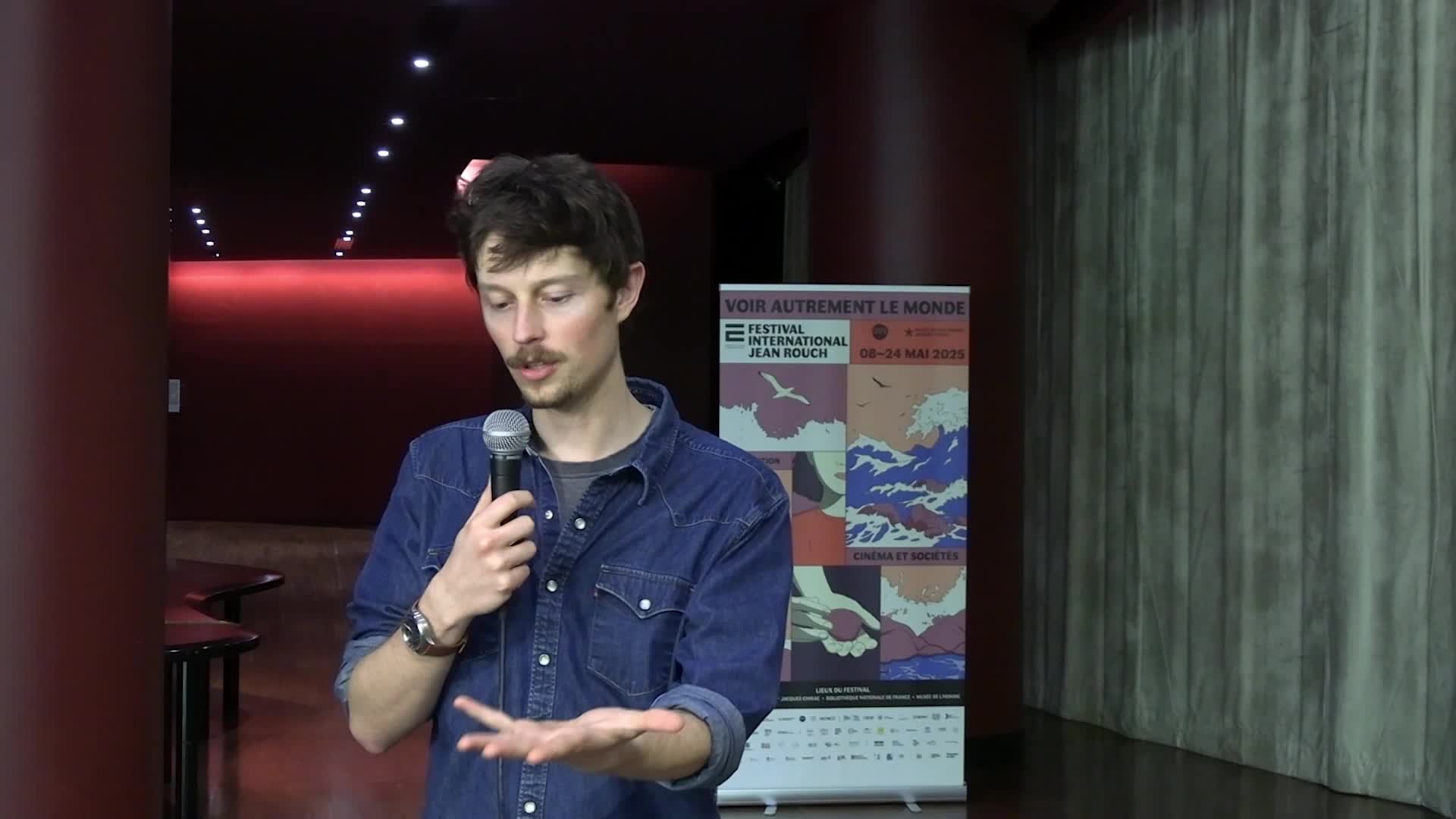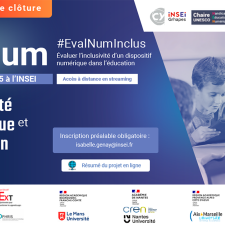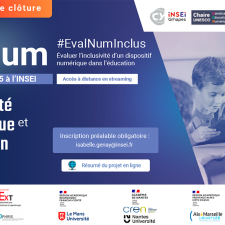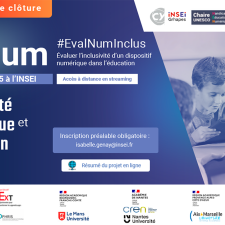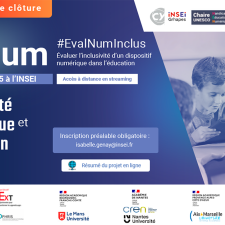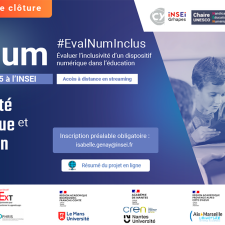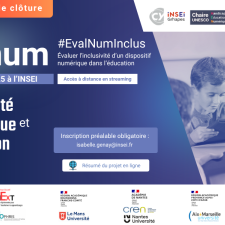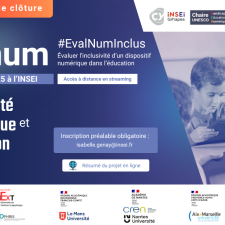Chapitres
- Exploring the Design and Application of an Intelligent French Dictation Platform21'20"
- Legacy and Lessons Learned from Emergency Remote Teaching and Assessment in Language Courses24'18"
- Ragazzi, can you hear me? University teachers' and students' attitudes towards code-switching in the New Normal.20'51"
Notice
Transformation in teaching and learning - 02 - English
- document 1 document 2 document 3
- niveau 1 niveau 2 niveau 3
Descriptif
A conference proposed and organised by Cned, DMS and The Open University.
Session chair : Freda WOLFENDEN
Exploring the Design and Application of an Intelligent French Dictation Platform
Speaker : Yuming ZHAI
Co-authors : Nina TIAN, Huang XIAOLIANG
Legacy and Lessons Learned from Emergency Remote Teaching and Assessment in Language Courses
Speaker : Yunjung NAM
Ragazzi, can you hear me? University teachers' and students' attitudes towards code-switching in the New Normal.
Speakers : Antonella GIACOSA, Antonella LUPORINI
Intervention / Responsable scientifique
Thème
Documentation
Exploring the Design and Application of an Intelligent French Dictation Platform
Dictation is considered as an efficient exercise for testing FFL learners’ language proficiency. However, the traditional “class-based” approach to dictation entails many constraints due to the inherent complexity in the way this exercise is designed, materialized and conducted. To remedy this, this study adopts a design-based research approach and tries to design, develop and apply an intelligent French dictation platform, tested by fifty undergraduate FFL learners after class. Through an examination of learners’ feedback, this study identifies advantages such as time-space flexibility, instant correction and possibility to repeat exercises; but also disadvantages, such as inconvenience of typing text, impossibility to promptly ask teacher questions and absence of collective learning and supervision. Crucially, this study makes an encouraging step in classifying frequent errors committed by Chinese learners. The result it he starting point of the development of a more advanced dictation platform in the future, which will provide an automatized error classification.
Legacy and Lessons Learned from Emergency Remote Teaching and Assessment in Language Courses
This study explored the specific context of emergency remote teaching (ERT) during the COVID-19 pandemic, focusing on the topic of classroom language assessment.
This study was guided by two research questions: 1) What were language teachers’ practices and perceptions of assessment? 2) What were the challenges and opportunities faced by language teachers? The data were collected quantitively (online surveys) and qualitatively (semistructured individual interviews). The survey participants included 124 teachers in language courses offered online. The interviews were conducted with eight teachers and three language program coordinators. The findings suggested that teachers made modifications in different aspects of assessment (e.g., medium, weight), explored new methods (e.g., open-book exams, audio/video-recording), and utilized different feedback types (e.g., audio-recorded feedback) in the online assessment. Teachers expressed the need for more hands-on training opportunities specific to language assessment. Teachers were also faced with challenges in time management for fulfilling their responsibilities but had the opportunities to engage in critical reflection on assessment. Compared to face-to face (F2F) assessment, teachers’ concerns about academic dishonesty were higher. To ensure academic honesty, teachers reported the use of various measures (e.g., video proctoring). Implications for teacher education and recommendations for language programs and teachers are provided.
Ragazzi, can you hear me? University teachers' and students' attitudes towards code-switching in the New Normal.
Code-switching (CS) has been widely investigated in the last decades sparking a debate between enthusiasts and detractors. Recent studies have emphasised its positive aspects and the multiple functions it can serve. Still, students’ point of view is underrepresented. At the same time, the role of CS in the new, post-pandemic context is still to be explored: CS could be a powerful resource to enhance teachers’ digital interactional classroom competence (ECIC), which is crucial in video-mediated instructional settings. Our data driven contribution addresses the above-mentioned shortcomings, by investigating university EFL teachers’ and students’ perceptions of their use of CS while interacting in the ‘new normality’. To this end, we discuss results from questionnaires distributed in the first semester of academic year 2021/2022 – a moment when remote and hybrid (both face-to face and online) teaching modes had stepped in as the new normal after the emergency. By triangulating quantitative and qualitative data from the questionnaires and the Appraisal analysis of teachers’ and students’ open comments, this paper aims to contribute to the body of knowledge on CS as a meaningful aspect of E-CIC to improve interaction in the new teaching environments.
Dans la même collection
-
Transformation des modes d’organisation du travail des enseignants, étudiants et personnels de sout…
PetitLaurentKennelSophieChenYuchenFenoglioPriscaCadetLucileLa perception du numérique en pédagogie universitaire aujourd'hui, entre transformations et permanences : résultats d'une enquête à l'Université de Strasbourg. / Ingénieur pédagogique et numérique en
-
Transformation in teaching and learning - 01 - English
SticklerUrsulaPapadopoulouMelpomeniJohnsonJane HelenCovid crisis management in higher education in France: the case of distance learning. / From the classroom to a MOOC. University teachers' experiences compared.
Sur le même thème
-
Causeries Pédagogie - Enseignement à distance #5 - IA et productivité pédagogique
PorlierChristopheBatierChristopheCauseries Pédagogie - Enseignement à distance #5 - IA et productivité pédagogique
-
Présentation du dossier journée Erasmus
Présentation du dossier en vidéo
-
- Le numérique au quotidien : pratiques et enjeux dans une classe soutenue par une ULIS-collège
AssudeTeresaFeuilladieuSylvianeBussezAlexandraMartinPerrineLe numérique au quotidien : pratiques et enjeux dans une classe soutenue par une ULIS-collège
-
Zsófia Paczolay et Dorian Rivière parlent de leur film "Je suis là"
PaczolayZsófiaRivièreDorianInterview de Zsófia Paczolay et Dorian Rivière pour leur film "Estou Aqui"/"Je suis là", en compétition à la 44ème édition du Festival International Jean Rouch en 2025.
-
Matthew Wolkow parle de son film "Eastern Anthems"
WolkowMatthewInterview de Matthew Wolkow pour son film co-réalisé avec Jean-Jacques Martinod "Eastern Anthems" en compétition à la 44ème édition du Festival International Jean Rouch en 2025.
-
Évaluer des usages du numérique à l'école primaire : un regard didactique sur des pratiques ordinai…
DupréFrédéricÉvaluer des usages du numérique à l'école primaire : un regard didactique sur des pratiques ordinaires
-
Usage du numérique dans une dynamique inclusive : impact d'une pratique coopérative sur l'accès aux…
Louge DupratMagalieUsage du numérique dans une dynamique inclusive : impact d'une pratique coopérative sur l'accès aux savoir.
-
Enjeux, principes et outils de l'observation in situ des usages pédagogiques inclusifs du numérique
BenoitHervéEnjeux, principes et outils de l'observation in situ des usages pédagogiques inclusifs du numérique
-
Le projet GTnum à l'échelle d'un territoire académique : témoignage de Julien Roche
RocheJulienLe projet GTnum à l'échelle d'un territoire académique : témoignage de Julien Roche
-
Un questionnaire académique pour donner à voir les pratiques numériques inclusives
DupréFrédéricBenoitHervéUn questionnaire académique pour donner à voir les pratiques numériques inclusives
-
Évaluer l'inclusivité d'un dispositif numérique dans l'éducation (GTnum) : état de l'art
Petry-GenayIsabelleBenoitHervéÉvaluer l'inclusivité d'un dispositif numérique dans l'éducation (GTnum) : état de l'art. Hervé Benoit et Isabelle Petry Genay, INSEI.
-
Ouverture de la journée GTnum#EvalNumInclus 2025
BenoitHervé"Évaluer l'inclusivité d'un dispositif numérique dans l'éducation"



